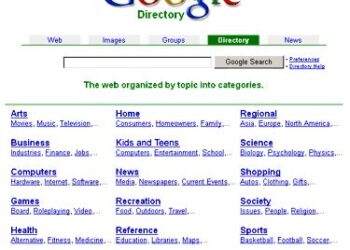Introduction to Business One
Business One is a business management software developed by SAP. It is specifically designed for small and medium-sized enterprises to streamline their operations and improve their overall performance. The software provides a comprehensive solution for managing various aspects of businesses, including finance, sales, inventory, and customer relationship management.
Business One is important for businesses because it offers a centralized platform for managing all business processes. This helps businesses to be more responsive to customer demands, improve efficiency, and reduce costs. The software provides real-time information and insights, enabling businesses to make informed decisions and stay ahead of the competition.
The benefits of using Business One are numerous. The software allows businesses to automate their processes, which reduces errors and saves time. It also provides accurate and timely data on various business operations, which enables businesses to optimize their performance. Additionally, Business One offers a mobile app, which allows businesses to stay connected and manage their operations from anywhere at any time.
Business One works by integrating various business processes into one platform. The software provides a user-friendly interface that allows businesses to manage their finances, sales, inventory, and customer relationships in one place. It also offers features such as analytics and reporting, which help businesses to gain insights into their operations and make informed decisions. The software can be customized to meet the specific needs of different businesses, ensuring maximum efficiency and productivity.
Features of Business One
Business One is an integrated business management solution designed for small and medium-sized enterprises. It offers a range of features that can help businesses manage their financials, sales, customer relationships, procurement, inventory, production planning, control, reporting, analytics, and integration with other systems.
Financial Management
The financial management feature of Business One helps businesses manage their financial processes, including accounting, budgeting, banking, and cash flow management. It provides real-time access to financial data, enabling businesses to make informed financial decisions.
Sales and Customer Management
The sales and customer management feature of Business One helps businesses manage their sales processes and customer relationships. It provides tools for managing customer contacts, sales leads, sales orders, and invoices. It also offers insights into customer behavior, enabling businesses to improve their customer service and sales processes.
Procurement and Inventory Management
The procurement and inventory management feature of Business One helps businesses manage their procurement processes and inventory levels. It provides tools for managing suppliers, purchasing, and inventory replenishment. It also offers insights into inventory levels, enabling businesses to optimize their inventory management processes.
Production Planning and Control
The production planning and control feature of Business One helps businesses manage their production processes. It provides tools for planning production schedules, tracking production progress, and managing quality control. It also offers insights into production efficiency, enabling businesses to optimize their production processes.
Reporting and Analytics
The reporting and analytics feature of Business One helps businesses generate reports and analyze their business data. It provides customizable dashboards and reports, enabling businesses to track their performance and make informed decisions. It also offers insights into business trends, enabling businesses to identify opportunities and challenges.
Integration with Other Systems
The integration feature of Business One enables businesses to integrate their business processes with other systems, such as CRM, ecommerce, and supply chain management systems. It provides a seamless integration experience, enabling businesses to streamline their business processes and improve their operational efficiency.
Read more:
- Discover Dropbox Business
- Real Estate Business
- Discover the Benefits of Business Com for Your Company
Implementation of Business One
Business One is a popular enterprise resource planning (ERP) system that helps businesses manage their finances, operations, and customer relations. To implement Business One, companies need to follow a few key steps.
System requirements
Before installing Business One, companies need to ensure that their hardware and software meet the system requirements. This includes a server with a recommended operating system, sufficient memory and storage space, and compatible database software. Clients need to have a compatible operating system and network connectivity to the server.
Installation process
Business One installation is done by technical consultants. The process involves installing Business One server components, client components, and necessary add-ons. After installation, the consultants will perform basic configuration and settings to ensure that the system is fully functional.
Data migration
Companies need to transfer their existing data to the new system. Data migration can be done manually or through automated tools. The consultants will work with the company’s IT team to map and migrate data from the old system to the new system.
Customization and configuration
Business One can be customized to fit the specific needs of the company. This includes modifying workflows, forms, reports, and adding new fields or features. Consultants will work with the company to identify customization requirements and make changes accordingly.
User training
Once the system is installed and configured, users need to be trained to use it. Training can take place in-person or remotely. The consultants will provide training on basic operations, specific modules, and any customizations that were made.
Ongoing support and maintenance
After implementation, companies need to have ongoing support and maintenance for Business One. This includes applying updates and patches, fixing issues, and providing technical support. Companies can opt for in-house IT support or outsource support to a third-party provider.
 bussiness one) Business One for Small and Medium Enterprises (SMEs)
Business One for Small and Medium Enterprises (SMEs)
Small and Medium Enterprises (SMEs) are the backbone of the economy. They account for a significant portion of job opportunities and contribute to the overall growth of the economy. However, SMEs often face challenges that hinder their growth, including limited resources, lack of expertise in various business functions, and difficulty in managing multiple operations.
Enter Business One, an enterprise resource planning (ERP) software designed specifically for SMEs. Business One integrates various business functions, including accounting, sales, inventory, and customer relationship management, into a single system. This software offers several advantages for SMEs, including:
Advantages of using Business One for SMEs
1. Streamlined business operations: Business One simplifies complex business processes, making it easier for SMEs to manage various operations, including accounting, inventory, and sales. This software allows SMEs to streamline their processes, reduce redundancies, and increase efficiency.
2. Improved decision-making: Business One provides SMEs with real-time data and analytics, enabling them to make informed decisions. This software generates reports and dashboards that offer insights into the business operations, allowing SMEs to identify areas that need improvement and make data-driven decisions.
3. Scalability: Business One is designed to grow with SMEs. SMEs can start with a basic package and upgrade as their business grows. This software offers a flexible and scalable solution for SMEs, making it an ideal choice for businesses that plan to expand in the future.
Common use cases
Business One is suitable for various industries and business functions. Some of the common use cases include:
- Inventory management: SMEs can use Business One to manage their inventory, including tracking stock levels, creating purchase orders, and managing sales orders.
- Accounting: Business One offers full accounting functionality, including accounts payable, accounts receivable, general ledger, and financial reporting.
- Sales and customer relationship management: Business One allows SMEs to manage their sales process, including tracking leads, opportunity management, and customer relationship management.
Success stories of SMEs using Business One
SMEs across various industries have successfully implemented Business One. One such success story is that of Mactaggart & Mickel, a Scottish construction company that implemented Business One and saw significant improvements in their business processes. With Business One, Mactaggart & Mickel streamlined their accounting processes, reduced manual data entry, and improved their reporting capabilities. As a result, they were able to focus on their core business functions and increase their overall efficiency.
In conclusion, Business One offers SMEs a comprehensive solution for managing their business operations. This software provides several advantages, including streamlined processes, improved decision-making, and scalability. With its versatility and flexibility, Business One is an excellent choice for SMEs that want to grow their business and stay competitive in today’s market.
Business One for Large Enterprises: Scalability, Customization, and Case Studies
SAP Business One is a popular enterprise resource planning (ERP) software that helps small to midsize businesses manage their operations in real-time. However, Business One is not just for small businesses; it also offers scalability and customization options for large enterprises. In this article, well explore how Business One can benefit large enterprises and provide case studies of companies that have successfully implemented it.
Scalability of Business One
One of the main benefits of Business One for large enterprises is its scalability. As a company grows, its needs become more complex, and it requires a software solution that can keep up. Business One can handle large amounts of data, users, and transactions without sacrificing performance. Additionally, it can support multiple languages, currencies, and legal requirements, making it a great fit for global enterprises.
Customization Options for Large Enterprises
Business One also offers customization options for large enterprises. Every business has unique needs, and Business One can be tailored to meet those needs. It has a robust set of APIs that allow developers to create custom integrations with other software solutions. Additionally, it has a flexible data model that enables businesses to add custom fields, tables, and forms to the application.
Case Studies of Large Enterprises Using Business One
Many large enterprises have successfully implemented Business One to manage their operations. For example, TPS Group, a logistics company with over 1,000 employees and 80 warehouses, uses Business One to manage its financials, inventory, and customer relationships. By consolidating its data into one system, TPS Group was able to reduce manual processes and improve efficiency.
Another example is Vantage Apparel, a promotional apparel company with over 750 employees. Vantage Apparel uses Business One to manage its supply chain, production, and financials. By automating its processes with Business One, Vantage Apparel was able to reduce its order-to-shipment time by 50%.
In conclusion, Business One can offer large enterprises scalability, customization options, and real-time visibility into their operations. By implementing Business One, companies like TPS Group and Vantage Apparel were able to improve efficiency, reduce costs, and grow their businesses. If youre a large enterprise looking for an ERP solution, Business One is definitely worth considering.
Costs and Pricing of Business One
Business One is a powerful business management software designed for small and medium-sized enterprises. It offers a range of features and capabilities to help businesses streamline their operations and improve their productivity. However, before investing in Business One, it is important to understand the costs and pricing involved.
Licensing Options
Business One is licensed on a per-user basis, with a choice of two deployment options: on-premise or cloud-based. The on-premise deployment option requires businesses to purchase and install the software on their own servers, while the cloud-based deployment option provides access to Business One through the cloud, with all maintenance and upgrades handled by the vendor.
Upfront Costs
The upfront costs of Business One depend on the deployment option chosen. For on-premise deployment, businesses need to purchase the software license, along with any necessary hardware and infrastructure upgrades, which can cost anywhere from $10,000 to $50,000 or more. For cloud-based deployment, businesses pay a monthly subscription fee, which typically ranges from $80 to $150 per user per month.
Ongoing Costs
In addition to the upfront costs, there are ongoing costs associated with Business One. For on-premise deployment, businesses need to budget for maintenance and support costs, as well as any additional hardware or software upgrades. For cloud-based deployment, businesses pay a monthly subscription fee, which includes maintenance and support.
Return on Investment (ROI) of Business One
Despite the costs and pricing involved, Business One can deliver significant ROI for businesses. By streamlining operations, improving productivity, and providing better visibility into business performance, Business One can help businesses increase revenue, reduce costs, and improve their bottom line. The exact ROI of Business One will depend on factors such as the size and complexity of the business, the deployment option chosen, and the specific use case.
In conclusion, while Business One may involve significant costs and pricing, it can deliver significant benefits to businesses, making it a worthwhile investment for many small and medium-sized enterprises.
Comparison of Business One with Other ERP Systems
Enterprise Resource Planning (ERP) systems have become a necessity for businesses as they help automate and streamline various business processes. There are several ERP systems available in the market, each with its own set of advantages and disadvantages. SAP Business One is one such ERP system that has gained popularity among businesses of all sizes. In this article, we will compare Business One with other ERP systems and look at their key differences.
Advantages of Business One over Other ERP Systems
Here are some of the advantages of Business One over other ERP systems:
- User-friendly: Business One has a simple and intuitive interface that is easy to use even for non-technical users.
- Scalability: It can be easily scaled up or down depending on the size and needs of the business.
- Integration: Business One integrates seamlessly with other SAP products and third-party software.
- Customization: It allows for customization of workflows and reports according to the business’s specific needs.
- Cost-effective: Business One is relatively affordable compared to other ERP systems.
Disadvantages of Business One Compared to Other ERP Systems
However, there are also some disadvantages of Business One compared to other ERP systems:
- Limited functionality: Business One may not have as many features and functionalities as some of the other ERP systems in the market.
- Complex implementation: The implementation process of Business One can be complex and time-consuming.
- Support: The level of support provided by SAP for Business One may not be as extensive as for other ERP systems.
Key Differences between Business One and Other ERP Systems
Here are some of the key differences between Business One and other ERP systems:
- Target market: Business One is designed for small and medium-sized businesses, while other ERP systems may target larger enterprises.
- Architecture: Business One is based on a single platform, while other ERP systems may be based on multiple platforms.
- Industry-specific functionality: Some ERP systems may offer industry-specific functionalities, while Business One offers more general functionalities.
In conclusion, SAP Business One is a powerful and user-friendly ERP system that has several advantages over other ERP systems. However, it may not be the best fit for all businesses, and it is important to carefully evaluate its advantages and disadvantages before making a decision.
Future of Business One
Business One is an ERP (Enterprise Resource Planning) software solution designed by SAP for small and medium-sized businesses. Over the years, Business One has evolved and adapted to meet the changing needs of businesses. Here are some of the new features, trends, and potential for Business One to continue evolving.
New Features and Updates
With each new update, Business One has been adding new features to enhance its overall functionality. The most recent version, Business One 10.0, features improved user experience, a new dashboard, and advanced analytics. It also provides integration with SAP HANA, allowing businesses to access real-time data and insights.
Trends in the ERP Market
ERP software solutions have been gaining popularity in recent years due to their ability to streamline business processes and improve overall efficiency. In addition, ERP solutions are becoming more affordable and accessible to small and medium-sized businesses. This trend is expected to continue in the coming years as more businesses adopt ERP solutions to stay competitive.
Potential for Business One to Evolve and Adapt
As the ERP market continues to evolve, Business One has the potential to adapt and evolve as well. With its integration with SAP HANA, Business One is well-positioned to provide businesses with real-time data and analytics. Additionally, Business One can continue to add new features and updates to enhance its overall functionality and provide businesses with more value.
Choosing the Right Business One Partner
Choosing the right partner for your Business One implementation project is crucial. A good partner can help you navigate the complexities of the software, while a bad one can cause delays, cost-overruns and other problems. Here are some factors to consider when choosing a Business One partner:
Certifications and Expertise
Look for a partner with a strong background in Business One. They should have certifications and expertise in the software. This will ensure that they have the knowledge and skills necessary to implement the software correctly.
Customer Reviews and Testimonials
Check the partner’s website for customer reviews and testimonials. You can also ask the partner for references. This will give you an idea of the partner’s track record and customer satisfaction. Look for partners with a high rating and positive feedback.
Support and Maintenance Services
Ask the partner about their support and maintenance services. They should offer comprehensive support and maintenance services to keep your software running smoothly. This includes troubleshooting, upgrades, and other services.
Project Management
Choose a partner with strong project management skills. They should have a proven track record of successfully managing projects. This will ensure that your implementation project is completed on time, within budget, and to your satisfaction.
By considering these factors, you can choose the right partner for your Business One implementation project. Working with the right partner can help you get the most out of your software and ensure a successful implementation.
Conclusion: Key Points and Recommendations for Businesses Considering Business One
In conclusion, Business One is a powerful and efficient software solution for small and medium-sized businesses. Here are the key points weve covered:
- Business One is an all-in-one software solution that can streamline your business processes and improve efficiency across all departments.
- The software includes modules for financial management, sales and customer management, inventory and production management, and more.
- Business One is user-friendly and easy to implement, making it accessible to businesses of all sizes.
- With real-time data and reporting capabilities, Business One can help businesses make informed decisions and stay ahead of the competition.
For businesses considering Business One, we recommend the following:
- Take advantage of the available resources and support provided by SAP to ensure a smooth implementation process.
- Customize the software to fit your specific business needs, but also be open to the pre-built modules and best practices offered by SAP.
- Train your employees thoroughly on the software to maximize its benefits and improve adoption rates.
Overall, Business One is a robust solution that can help businesses of all sizes improve productivity, reduce costs, and increase profitability. By taking advantage of its features and capabilities, businesses can stay competitive in todays fast-paced and ever-changing business environment.







